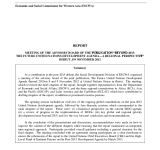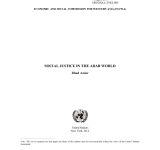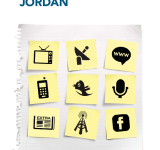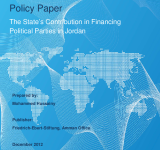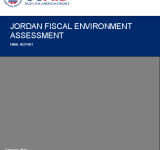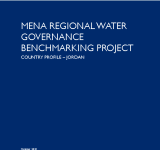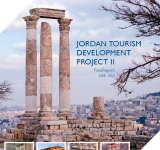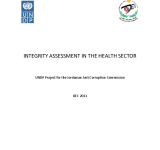transparency
يتناول هذا التقرير الذي نشرته اللجنة الاقتصادية والاجتماعية لغربي آسيا (الإسكوا)، مفهوم العدالة الاجتماعية كما هو موجود في العالم العربي. ويبحث التقرير تطور مفهوم العدالة الاجتماعية داخل المنطقة ويقيم
يتناول هذا المشروع الفرص والمخاطر العالمية التي أنشأها الانتقال من التقليدية إلى وسائل الإعلام الرقمية، ويكشف تأثير هذه التغييرات في الأردن في خضم حملة على حرية وسائل الإعلام بعد الانتفاضات في عام 211
This paper examines issues concerning the state's financial contribution to political parties. It argues that the weakness of parties' financial resources limits their ability to engage in political activities and elections. The purpose of this paper is thus to provide a number of options and recommendation to help decision makers form the state's system for financing political parties. It aims to provide suitable financial support for each political party;; encourage the development of political parties in Jordan;; raise the political efficiency of political parties;; develop their organizational structures;; and motivate parties to participate in political life at national and local levels. This paper analyzes the positives and negatives of four financing options and;; based on this analysis;; presents a suggested system to assist decision makers as they design the state's financing mechanism for political parties.
The assessment report is a final product of the Asia and Middle East Economic Growth Best Practices project (AMEG);; which is designed to support USAID missions in developing effective and efficient economic growth programs that address technical and strategic challenges. The report provides an introduction to Jordan's macroeconomic performance and structure and examines the field assessment's key lines of inquiry such as fiscal environment;; taxation;; customs and trade facilitation;; the energy sector;; policy analysis and political economic environment. It identifies the structure and performance of each inquiry and adds policy;; administrative;; and institutional environment;; and its challenges and opportunities.The report's concluding section outlines key challenges and opportunities;; and offers recommendations. Some of the findings include Jordan's lack of robust forum for soliciting and integrating input on economic policy issues from key stakeholders or the wider public and lack of institutional capacity to develop macroeconomic models. The report suggests facilitating national dialogue and consensus building on economic policy issues and building capacity to integrate stakeholder input.
The report is a Jordan country profile of the Regional Water Governance Benchmarking Project (ReWaB) and the results assessment of the project. The ReWaB is a project that aims to establish a system of water governance capacity and performance benchmarking for Middle East and North Africa countries. The report resents the projects' approach to water governance benchmarking;; brief overview of the political;; economic;; and social situation in Jordan;; the country's water availability;; and it also outlines the main users and managers of Jordan's limited water resources and identifies relevant trans boundary issues. With a description of the main actors in Jordan's water governance and their influence on functional performance;; the report presents and discusses the main findings of the Policy and Legal Analysis and the expert-based assessment;; which gauged the functional effectiveness of the Jordanian water sector and application of good governance processes in water-related decision-making. The report concludes by highlighting Jordan's organizing and building capacity and strategic planning in policy documents. It also notes areas with potential challenges such as the broad function of allocating water and mechanisms for water trades and complimentary conflict mitigation.
The USAID Jordan Tourism Development Project is the largest dedicated tourism development project implemented by the United States Agency for International Development. The final report for the project phase of 2008-2013 shares success stories of developing Jordan's tourism sector and increasing the number of visitors to the country according to the updated national strategy for the current period with new targets and implementation of actions. The report highlights the projects' achievements in supporting archaeological conservation of key sites such as Petra;; Madaba and Amman Citadel and improving the visitor experience in Jordan through an extenstive nationwide training program. The final report also includes the stories of those who benefitted from USAID's investment in tourism and the USAID tourism project's comprehensive sustainable tourism industry development approach.
The report looked specifically at the areas of public mainly Ministry of Health (MoH) procurement of medications and medical devices and supplies. Accordingly a number of methodologies were being used to identify potential areas of integrity weakness in the public procurement processes. The existence of an effective functioning procurement system is dependent on the transparency of the processes;; and ability to hold individuals;; entities and personnel accountable for adhering to standard procedures;; norms;; laws;; by-laws and regulations in each of these functions. The approach to be taken in this assessment is to focus on the level of integrity rather than to deal purely with identifying corruption
